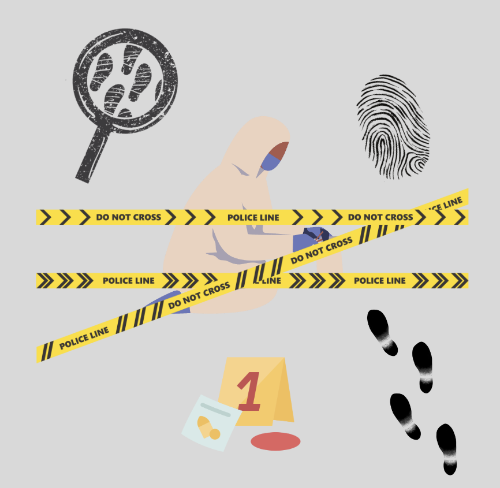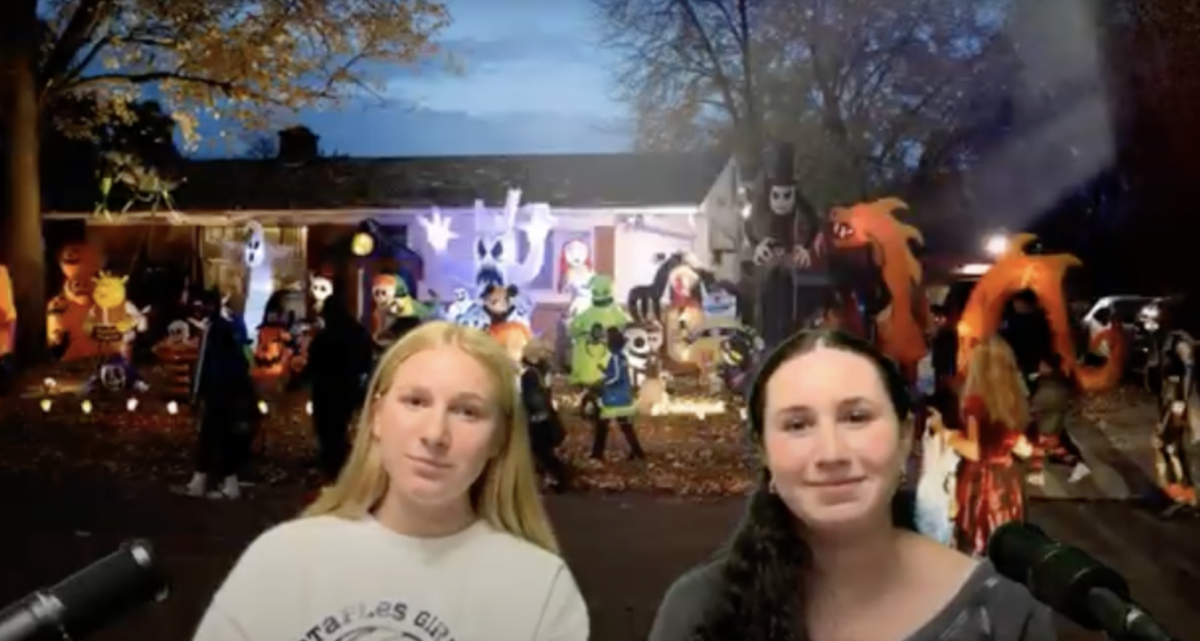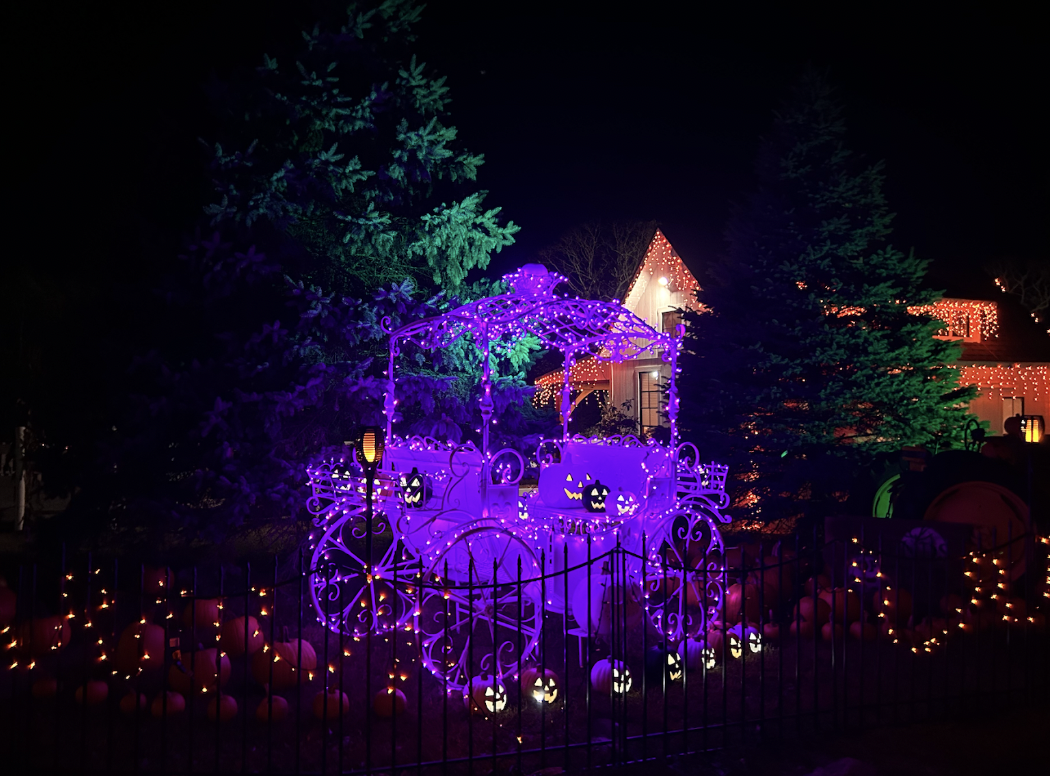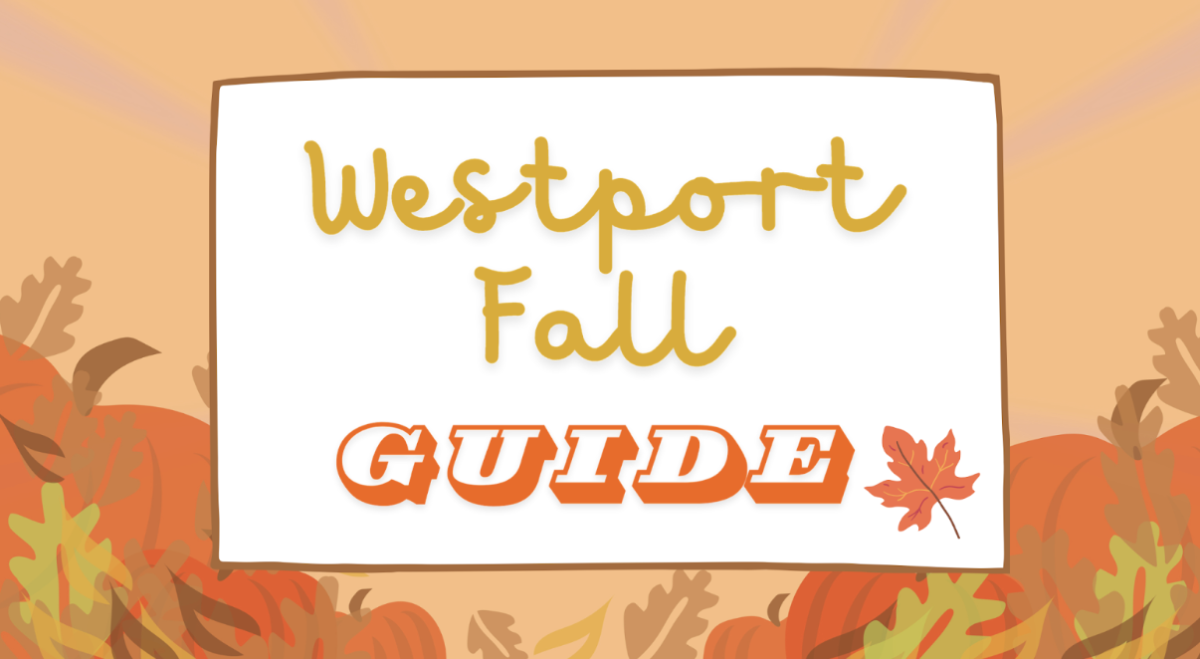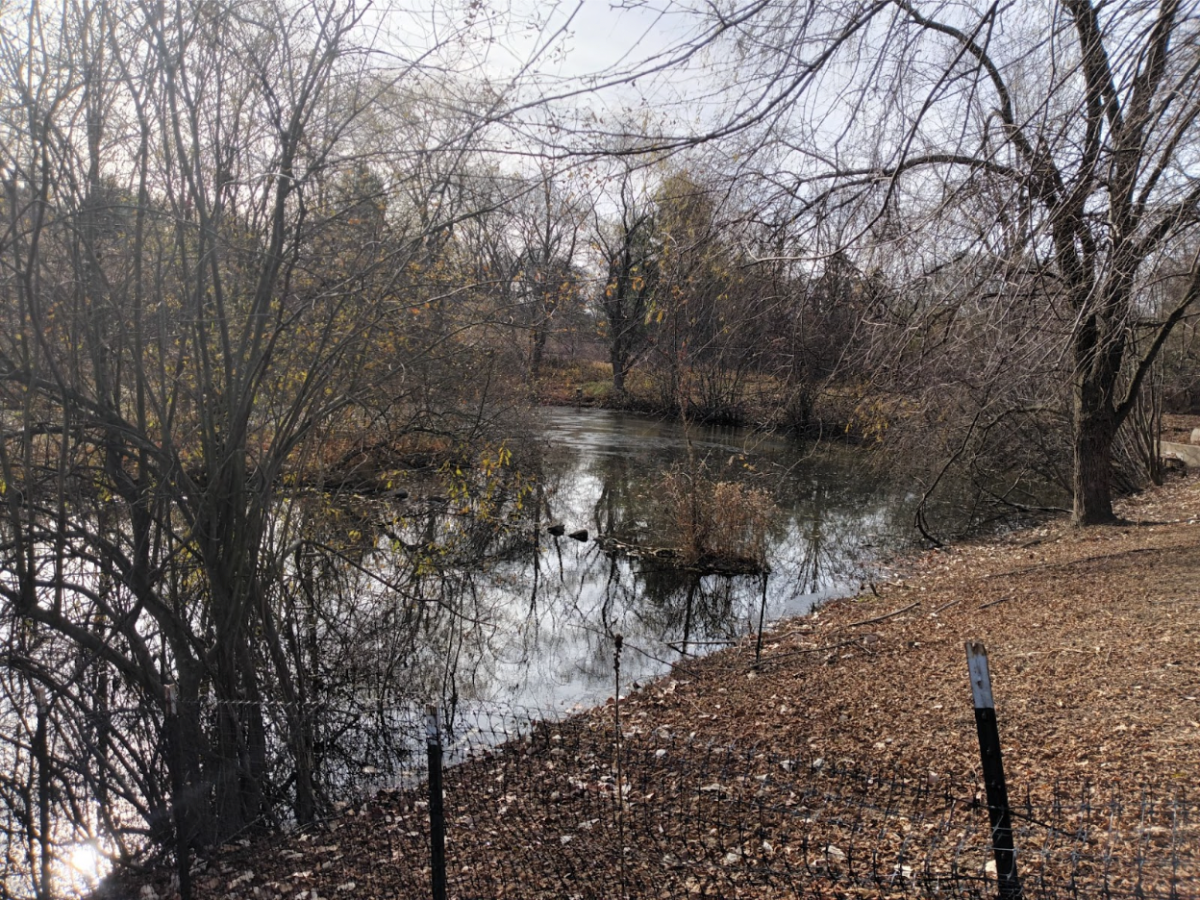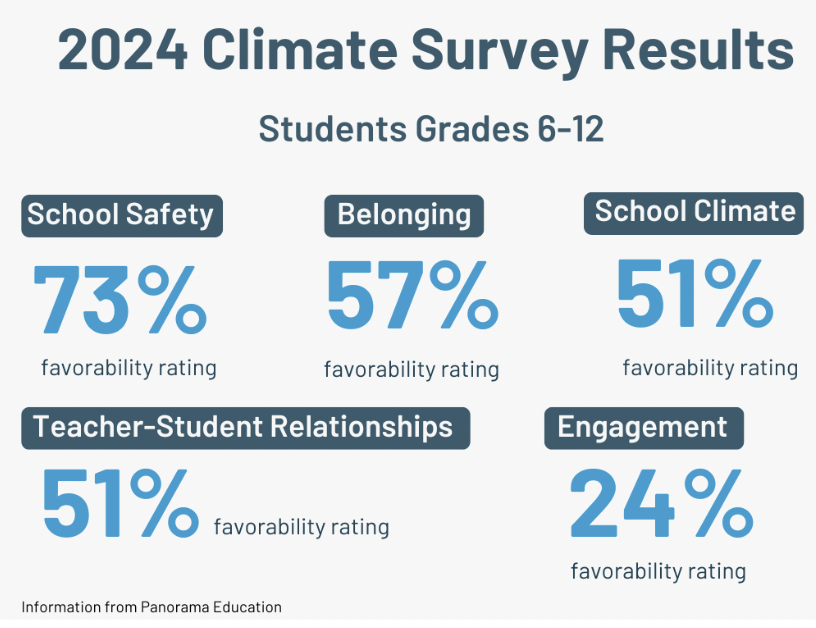Wakeman Town Farm recently finished the restoration of its detention pond with the help of a Patagonia grant in hopes of addressing the growth of invasive species over the years. Doing so will allow the pond to carry out its goal of filtering pollutants and runoff.
The first phase lasted multiple years and consisted of various stages. Initially, in 2017 the farm worked with a group called Green Goats, a land management company that uses goats to eat invasives to cut down the invasive vegetarians surrounding the pond. Recently, the farm planted and are testing some good cover crops, such as winter wheat, to help the soil. Currently, they are engaged in a battle against a really invasive plant species called Japanese knotweed. Since this plant has really strong, deep roots, they have to stress the system before they attempt to remove it.
“So what we’re doing is testing two different ways to try to remove the Japanese knotweed because it has crazy deep roots and it can spread quickly,” Wakeman Town Farm board member Anna Burmeister said. “[Currently] we are solarizing it. A black tarp will go [over] the plant, and after a while that makes the root system pretty vulnerable. And then we can dig it out.”
Most of the time when large development projects are built, detention ponds are often built for runoff. So when Bedford Middle School’s fields were built in the early 1990s, Wakeman Town Farm’s detention pond was built as well. The detention pond consists of detention bays in which sediment pollutants would land in the first tension bay, and settle to the bottom. Then the clean water would spill over to the next section of the pond, into the natural pond. And here the unhealthy materials from the pond would be filtered. The water would eventually trickle through to Deadman Brooke, and the Saugutack, then the Sound. It is essentially a filtering system that prevents these pollutants from going into our natural waterways.
“The first bit of the filtering system is these detention bays and that would get all the sediment and then the next detention bay is everything that happens in the pond,” Burmeister said. “So any sort of active healthy pond does a lot of filtering of the water as part of the system, so everything from the vegetation that’s planted around it to what’s living in the pond, is filtered in the second detention bay.”
The Wakeman Town Farm applied for and received a grant from Patagonia 9the recreational clothing store that focuses on sustainable practices) for the first phase of the restoration. They have applied for, and hope to receive, a grant from Patagonia for the second phase of restoration.
“So [Patagonia] paid for the fencing and all the tilling to put in our cover crop which is to help restore the soil and then the solarizing (covering the soil with clear plastic and allowing the sun to heat the earth underneath so the soil gets extremely hot) of the invasive species,” Burmeister said.
Additionally, the Wakeman Town Farm also uses specific master gardeners who are trained to identify and mark invasive plants. The farm then employs farmers and volunteers to carefully remove these plants.
“We had master gardeners come and then they decided what was here last year and what were new plants,” farmer Dasha Horton said. “A lot of them were invasive species. But there were some that were like native species and we wanted to make sure people who were identifying them knew so we can kind of section it off.”
A potential phase two or three, depending on the amount of funding the farm receives, would include taking out more invasive species. Wakeman Town Farm also wants to utilize the pond as an educational experience, so they also want to create safe access points to the point, as well as a pathway around the plant.
“We want to utilize this for our educational programs,” Burmeister said. “So there will be an access point down here along the coastline so they can take water samples, sedimentary samples, take frogs and identify them, that kind of thing.”


